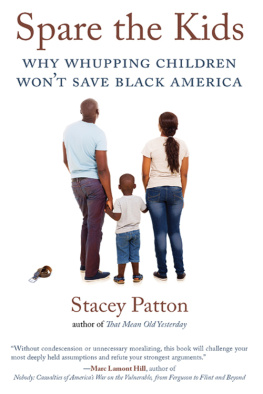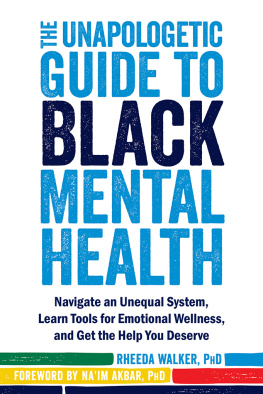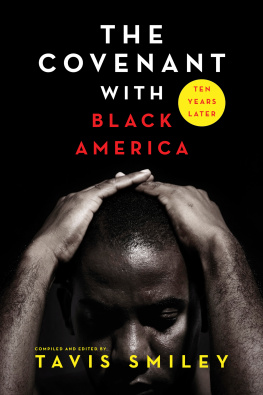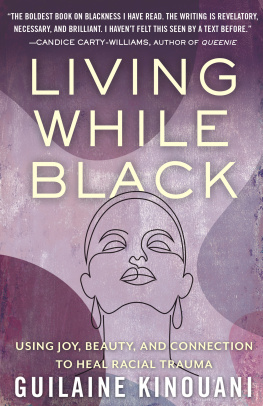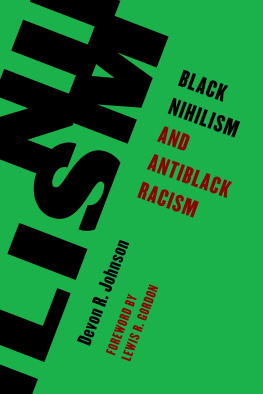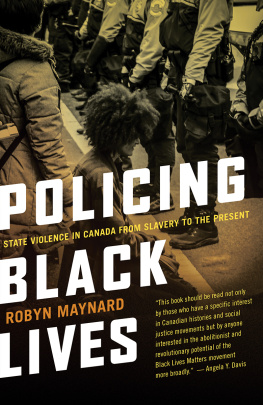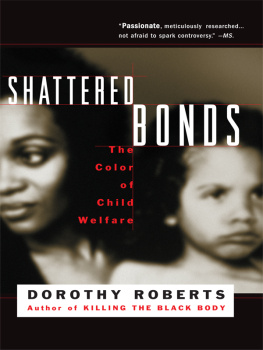Praise for Spare the Kids
Spare the Kids is a necessary book. Drawing from history, popular culture, and cutting-edge research, Stacey Patton makes a careful and persuasive argument against the practice of hitting children. Without condescension or unnecessary moralizing, this book will challenge your most deeply held assumptions and refute your strongest arguments. More importantly, it challenges us to develop a healthier and more humane approach to raising and loving our children.
Marc Lamont Hill, author of Nobody: Casualties of Americas War on the Vulnerable, from Ferguson to Flint and Beyond
The impact on child-rearing among so many black families of Stacey Pattons Spare the Kids may well prove as powerfully corrective as Harriet Beecher Stowes Uncle Toms Cabin was upon the acceptance of chattel slavery.
David Levering Lewis, two-time Pulitzer Prize winner for biographies on W. E. B. Du Bois
In a nation where violence is so readily offered as the answer to one or another problem, Stacey Pattons bold and uncompromising dismantling of the logic behind corporal punishment is a much-needed corrective. Though aimed specifically at support for the practice in the black community, this is far from a simple scolding of black America. Indeed, Patton brilliantly demonstrates the ways that corporal punishment is indelibly linked to white supremacy, and a continuation of the systemic logic that undergirds it. In that sense, her work is less moralizingsomething we already have more than enough ofthan a structural analysis of systemic injustice and how that injustice has been transmitted directly, and often brutally, onto the bodies of children. Though Patton aims her words directly at the black community, to the extent that corporal punishment is far too common among American families generally, this book has the potential to impact a broad and diverse audience.
Tim Wise, author of White Like Me: Reflections on Race from a Privileged Son
Pattons book is the most forceful case against corporal punishment ever maderooted in a deep understanding of the historical devaluation of black life, informed by the best science on trauma and violence exposure as predictors of future violence, and written in a fierce, urgent tone. If you turn these pages, you will stop beating your child. Ending the legacy of the masters lash in our schools and rejecting the preachers admonition against sparing the rod in our homes may be the surest way for parents to show black children that their lives matter.
Khalil Muhammad, author of The Condemnation of Blackness: Race, Crime, and the Making of Modern America and professor at Harvard Kennedy School
Spare the Kids is a heartbreakingand importantbook that addresses the nightmarish reality that black parents devoted to bringing up their children with love and respect may engage in punishment that hurts their families and reinforces ideas of white superiority and black inferiority. Skillfully weaving together history, the experiences of black families, the reports of researchers, and the work of child advocates, Stacey Patton is leading a call for change that will transform child-rearing forever.
Jorja Leap, author of Project Fatherhood: A Story of Courage and Healing in One of Americas Toughest Communities
As a writer who had my daughter in my middle thirties and my son in my forties, I had thought a lot about how I wanted to raise them. I decided before they were born that I would not spank them. Stacey Pattons Spare the Kids confirmed my instinct that it couldnt be a way to build the kind of loving, trusting relationship I wanted to have with my kids. Being a parent is hard, no doubt. We make decisions all day, every day, small ones and big that impact our childrens daily lives and ones that have long-range consequences. Pattons book reminds us that by respecting black children, their thoughts, their gifts, and their humanity, we show them that we love them.
Benilde Little, national best-selling author of Good Hair, The Itch, and Welcome to My Breakdown

To my village parents: Pamela Newkirk, Faith Hampton Childs, David Levering Lewis and Ruth Ann Stewart, Lillian Rhyme, Dorothy Hayes, Pamela Fleeks, Virginia Yans, Edna and Damon Williams, Maureen and Joseph Pallotto, David and Marina Ottaway, Donna Garcia and Scott Albert, TaRessa Stovall, Janice Walker, Kevin and Cheryl Brown

To the loving memory of Bonzal Bunny Hamilton and Rosalind Donna Jefferson
In the treatment of the child the world foreshadows its own future and faith. All words and all thinking lead to the childto that vast immortality and wide sweep of infinite possibility which the child represents.
W. E. B. DU BOIS

A FAMILY CONVERSATION
This book isnt just about hitting children. It is about black children and freedom. It is also a book about black America and our pain. It is an examination of history, racism, trauma, crime and policing, media, child welfare policy, science and medicine, popular culture, religion, humor, schooling, sexuality, and who gets to be a child in America.
At a historical moment when young people around this country are declaring to the world that black lives matter, that black girls rock and that they are magical, it is clear that the tides have changed. Our children want to breathe. Their hands are up; dont shoot. They dont want to be stopped. They dont want to be frisked. They dont want to be told to police their bodies in public spaces or to hold their tongues. They dont want to be forced to lie down on filthy sidewalks and submit to the injustice of the moment. They dont want to be the next Freddie Gray or Sandra Bland, portrayed as a thug in the news or turned into yet another heartbreaking hashtag on social media.
They are not alone.
Their parents and loved ones dont want them to experience such injustices either. They want their children to have opportunities to grow up to become healthy, thriving adults. This has been the cry of generations of black parents since slavery. These fears and the illusiveness of these simple hopes have been central to the struggle of black lives for all that time. But over the past few years, weve been caught in an endless cycle of grieving. The killings of unarmed black people by cops, and the senseless street murders of our young people by other blacks in cities across this country, have elevated parents fears and left them wondering how to protect their children. The body count has also intensified debates over physical punishment.
We live in a country where pregnant black women still have to ask the same ethical questions that the civil rights activist W. E. B. Du Bois posed a little more than a century ago: Is it worthwhile? Ought children be born to us? Have we any right to make human souls face what we face today?
The cold, hard truth is that we live in a country where black children dont get to be children. They face a culture that questions their intellectual abilities and slanders their humanity at every turn, and a criminal justice system that subjects them to adult penalties, even for first-time offenses. Black four- and five-year-olds are 18 percent of the countrys preschoolers but make up nearly half of out-of-school suspensions for toilet mishaps, crying, and throwing tantrums.

